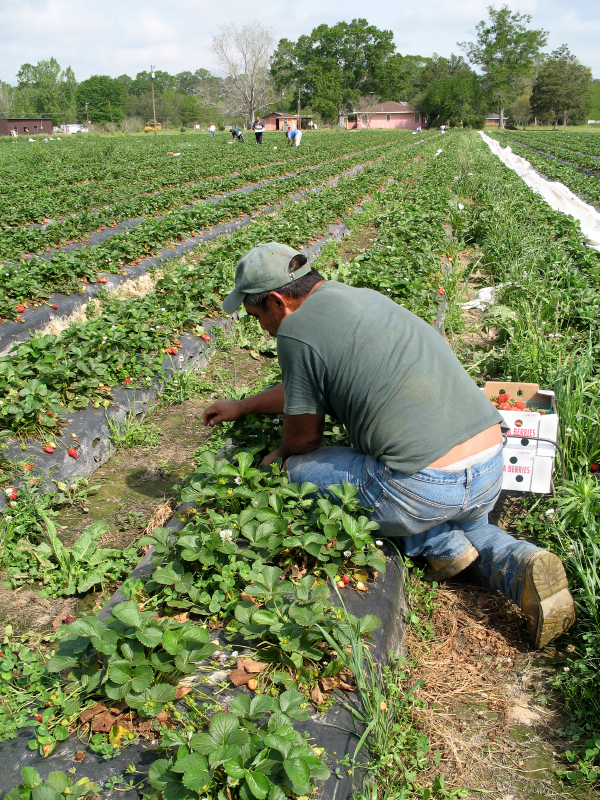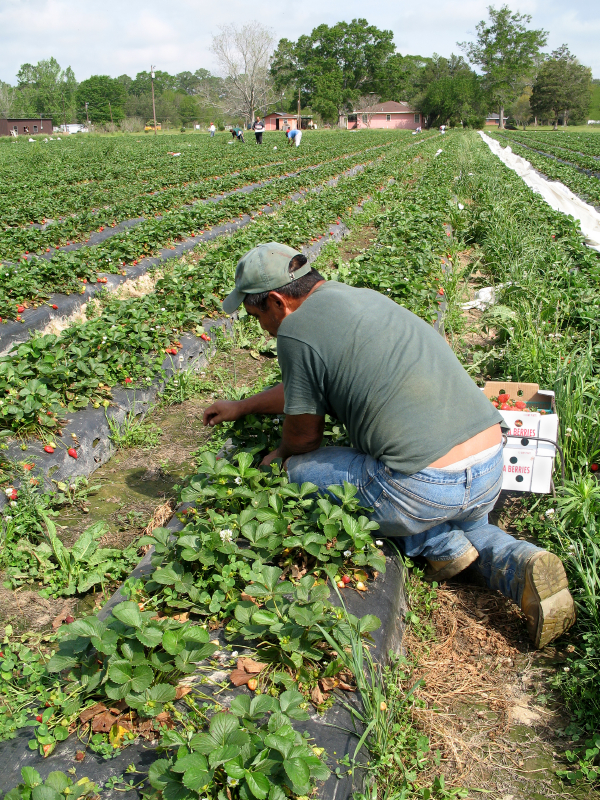 After a long battle, the state of California has overruled its own scientists and approved the use of the powerful neurotoxic pesticide methyl iodide on strawberries as a replacement for the ozone-depleting pesticide methyl bromide. Grist has covered the issue extensively, but it was Sam Fromartz, author of Organic, Inc, who brought up the crucial point:
After a long battle, the state of California has overruled its own scientists and approved the use of the powerful neurotoxic pesticide methyl iodide on strawberries as a replacement for the ozone-depleting pesticide methyl bromide. Grist has covered the issue extensively, but it was Sam Fromartz, author of Organic, Inc, who brought up the crucial point:
Like methyl bromide, methyl iodide is most hazardous to those who use it in the fields and to those who come into contact with its drift. It does not linger, like other pesticides, on the fruit itself. I wonder, if the state or even the EPA, would have thought differently about the pesticide, if there was a consumer risk. Farm workers and farm communities tend to be abstract and distant — we don’t know who these people are. Often, because they are immigrants, they remain silent. We don’t attend the schools abutting the fields. I just wonder, if we did, whether the outcome would have been different.
Make no mistake, as with elections, your food choices have consequences. The ability to eat conventional strawberries at any time of year is predicated on men and women — and their kids — somewhere else facing risks that the consumer would never choose for him or herself.
At the same time, consumers can’t be expected to track the risks up and down the food production chain. That’s what government is for — and it’s shameful that California (much less the EPA and the 47 other states that have approved methyl iodide) has decided a bumper strawberry crop is more important than the lives and health of the workers who harvest it and the children who live nearby.



